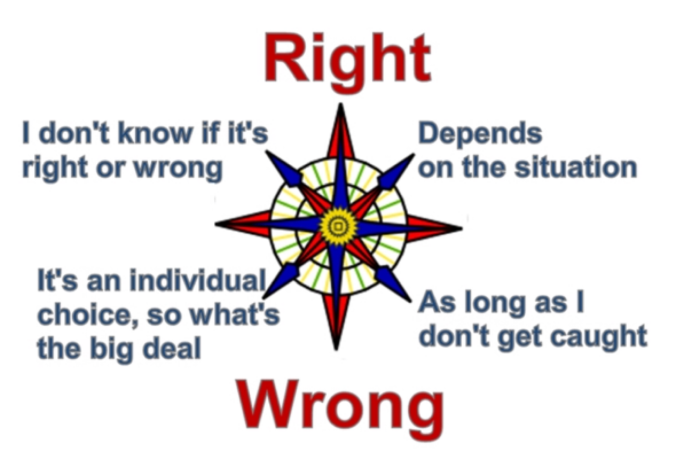I was recently asked to share a view on the intersection of morals, ethics and values. After much consideration and research, I came up with a framework that has helped me understand what’s required for ethical leadership.
You see, our morals or beliefs about what’s right or wrong are based on societal or cultural influences, religious teaching, and/or parental guidance. These beliefs provide our moral foundation and are difficult to change. They become hardwired like our DNA. Because I was raised in a southern Baptist household in the Bible-belt of the USA, most of my beliefs are based on scripture. When I have a question about what’s right or wrong, I go to the Bible as my source of truth. Others may rely on a different source of truth but most major religions have very similar tenants about integrity, love and concern for humanity.
Our values are the few prioritized beliefs that drive our behavior. Most of us have a few moral truths that take precedent over all other beliefs and evoke strong emotions when violated. For instance, if integrity is a personal value, you will likely be angry when lied to. If family is a personal value, you might go into debt if a relative is in need or become anxious if you haven’t talked to a sibling in a while. Alignment of personal values between individuals is how strong relationships are established. Alignment between personal values and corporate values, is how strong organizational cultures are created. Yet there is a difference between espoused values and lived values. Personal integrity is when our decisions or choices are aligned with our beliefs and values.
Ethics is related to this decision making process regarding what’s right or wrong. When we are living our truth, I believe, we are happier and more productive. However, because everyone’s moral compass is different, we are sometimes faced with ethical dilemmas. These are situations where there is no clear right or wrong based on our beliefs of the decision for the greater good conflicts with our personal beliefs.
Leaders are responsible for making decisions that affect others. They must choose the direction which will create a better future for all stakeholders. This means providing an ethical compass within organizations. There will be tough choices and ethical dilemmas. Others may disagree on what’s right. That’s okay; that’s leadership. Ethical leadership requires knowing your values and living your truth.
